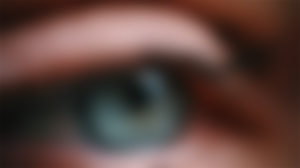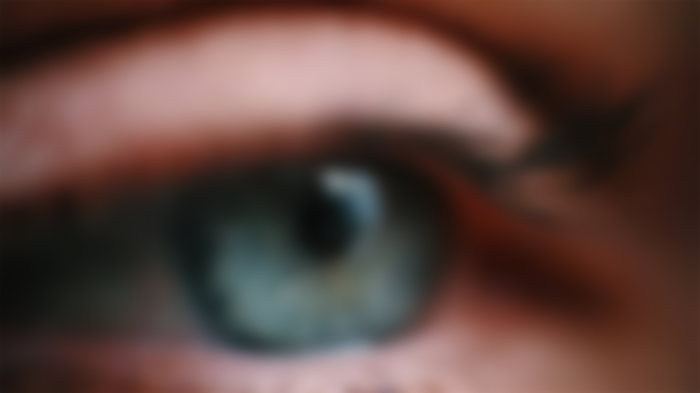Sleeping is essential in our life, we need to sleep for our body to be able to repair and be fit for another day. Often people neglected it's the importance which is a component of a person's overall wellbeing and health. Getting sufficient rest may also help prevent extra weight gain, heart disease, and increased illness duration.
For us to sleep, we need to close our eyes first.
But did you ever seen someone who sleeps with eyes half-open?
Or you may not know, it was you who are sleeping with eyes half-open.
You probably won't know if you sleep with your eyes open unless someone informs you that you do.
Sleeping with your eyes open sounds like something from a mystery, but it's a real condition.
Sleeping with your eyes open (fully or partially) is medically referred to as nocturnal lagophthalmos.

Nocturnal lagophthalmos is the inability to close the eyelids during sleep.
I saw my baby slept with eyes half-open
I often saw this in my son especially when he was still an infant. I was wondering why does he sleep with eyes half-open. I asked the mother of my partner about it, and she said it was completely normal. Gladly, I haven't seen him sleep like this as he turned 1 up to now.
Is it really normal for a baby to sleep with eyes half-open?
Babies sleeping with eyes open might look odd and worrisome, but it is completely normal and harmless.
When to Worry?
Although, it is normal for babies to sleep with their eyes open until they turn a year and a half. However, if your baby continues this habit even after he crosses the eighteen months mark, you should talk to your baby's doctor regarding the condition.
What I've mentioned above was for babies, now let's talk about Nocturnal lagophthalmos in adults.
Sleeping with Eyes Open
Is it really possible? The answer is Yes it is!
People who sleep with their eyes open may wake up feeling their eyes are dry and feel like sandpaper. Some may think this habit is strange, but it is quite common and normal as aforementioned above. However, a person who sleeps with their eyes open regularly could end up with severe eye problems. It can be dangerous for your eyes if left untreated for a long period of time.
Before we talk about the symptoms and is there any possible treatment, let's know first the causes why it happens.
Causes of Nocturnal Lagophthalmos
Nocturnal lagophthalmos is typically associated with a problem with the muscles or nerves of the face. Anything that causes weakness or paralysis in the orbicularis oculi muscle (the muscle that closes the eyelids), can lead to sleeping with the eyes open.
Some examples include:
Bell's palsy
trauma or injury
stroke
a tumor, or a surgery to remove a tumor near the facial nerve, such as an acoustic neuroma
neuromuscular diseases
autoimmune conditions, such as Guillain-Barré syndrome
Moebius syndrome, a rare condition characterized by cranial nerve palsies
It can also be caused by an infection, including:
Lyme disease
chickenpox
mumps
polio
leprosy
diphtheria
botulism
Nocturnal lagophthalmos can also be caused by physical damage to the eyelids.
For some people, sleeping with their eyes open has no apparent cause. It may also run in families, genetically.
Less typically, very thick upper and lower eyelashes might also prevent someone from being able to fully close their eyes at night, however it's rare to happen.
If people keep their eyes open while sleeping, their eyes can dry out. Without enough lubrication, the eyes are more vulnerable to infections and can become scratched and damaged. Most people discovered that they have slept with their eyes open because another person informs them they have done so.
People who sleep with eyes open may experience the following:
redness
blurred vision
irritation or a burning sensation
scratchiness
sensitivity to light
feeling as if something is in the eye or rubbing against it
poor sleep quality
Complications
It is possible that severe problems may arise if the eyes become dry or drained. These include:
loss of vision
eye infections
risk of scratching the eye
exposure keratopathy where the outermost layer or cornea is damaged
corneal ulcer where an open sore develops on the cornea
Treatment
If you suspect that you have nocturnal lagophthalmos you should visit your doctor.
A doctor will raise a question of whether any current or recent trauma or illness could be the cause, how long symptoms have been going on for, and when symptoms are at their worst.
Your doctor might suggest using moisture goggles at night to help moisten your eyes while you sleep. You can also try a humidifier. An external eyelid weight, which is worn on the outside of your upper eyelids at night, or surgical tape, can help keep your eyes closed.
Medications
To maintain the eye lubricated, your doctor might prescribe you medications, such as:
eye drops
artificial tears, which are administered at least four times per day
ophthalmic ointments to prevent scratches
The Bottom Line
Sleeping with your eyes open is usually normal and not serious. It can be managed with natural solutions, like eye drops, lid weights, and humidifiers. Yet, it might be a symptom of another condition or ailment.
It’s important to see your doctor if you have difficulty closing your eyes to sleep or you notice that your eyes are extremely irritated and uncomfortable throughout the day. The best thing to do is to treat nocturnal lagophthalmos before it comes to be a bigger problem.
Source References:
https://www.google.com/amp/s/parenting.firstcry.com/articles/baby-sleeps-with-eyes-open-is-it-worrisome/%3famp
https://www.healthline.com/health/sleeping-with-eyes-open#causes
Did you saw someone who sleep with his eyes half-open?
What are thoughts about this?
@eommaZel ✍🏻🥀


